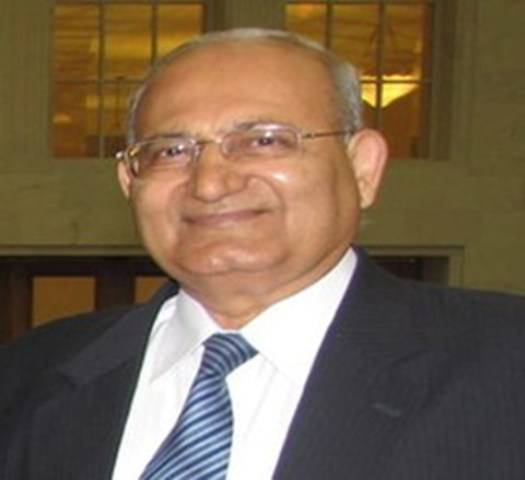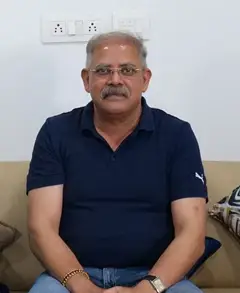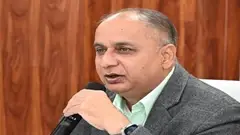
Q- Sir.. what was the background of the ‘1st International Agro-biodiversity Congress 2016’?
Ans- The 1st International Agro biodiversity Congress 2016 was organized to provide a platform to the stakeholders engaged in genetic resource conservation and management to deliberate on thematic issues of global importance, with major emphasis on rational and effective use of agro biodiversity for food, nutrition and environmental security.
Further, agro biodiversity centric issues, needs and specific problems are intended to be better elucidated and addressed through in-depth deliberations involving researchers, intellectuals, regulators, policymakers, executives, farmers, NGOs, donors, philanthropists and other stakeholders on a common platform. This could help in bringing out a clear roadmap and an implementation strategy needed for agro biodiversity policies, programs and capacity building at large.
Q- What are your views on the overall outcome of the Congress?
Ans- The congress was attended by over 900 participants from 60 countries. Throughout the congress, various aspects of access, conservation, management and use of agro biodiversity for human welfare were discussed.
It was recommended that there should be a global continuing committee and Biodiversity International(BI), being the key global organization under the CGIAR, agreed to facilitate the process of holding the second International Agro biodiversity Congress in 2020.
The Congress also highlighted that agro biodiversity consists of crop varieties, livestock, fish breeds and agriculturally useful insect and microbial species. Although significant progress has been made towards documentation, collection, conservation and use of genetic resources, yet it became evident that more efforts are needed towards sustainable use of available agro bioresearches, while ensuring greater exchange of genetic resources and the associated knowledge and technologies available.
The congress also highlighted the concern for erosion of biodiversity, which is taking place at a faster rate than before and the need to arrest it through joint efforts of all stakeholders. Also need for global awareness was considered necessary. Further, it was felt that these losses are irreversible and even if one species is lost, it is lost forever. Agro biodiversity is an area where maximum interference of human being takes place and in the pursuit to produce more, available genetic diversity gets reduced in wake of monoculture etc. It is, therefore, quite important for all nations to accord top priority to have a shared vision on agro biodiversity conservation through use and to achieve the Sustainable Development Goals.
During the congress, it was recommended that researchers and policymakers must initiate, strengthen and promote complimentary strategies to conserve agro biodiversity. Further, it was recommended that researchers should employ modern technologies like genomics, biotechnology, space, computational and nano-technologies for genetic resources characterization, evaluation and trait discovery. The countries need to be catalyzed to adopt both multi-lateral as envisaged in ITPGRFA and bilateral (as per Nagoya protocol) instruments to facilitate exchange of genetic resources while ensuring equitable benefit sharing.
It was proposed that governments, civil societies and the private sector should put more emphasis on public awareness as well as capacity enhancement programs relating to agro biodiversity conservation.
During the congress it was strongly recommended that an “International Agro biodiversity Fund” is created for assisting countries for scientific conservation and use of available agro biodiversity and the documentation of available rich traditional knowledge. In this context, there is a requirement of building strong public-private partnership to increase investments towards greater use of agro biodiversity for much needed genetic enhancement will be critical for human welfare.
Finally, the United Nations has been urged through Food and Agriculture Organization (FAO) to consider declaring on priority an ‘Year of Agro biodiversity’ in order to draw worldwide attention.
Q- where and when will the next conference take place?
Ans- The next congress will take place in the year 2020. In future, it is expected to be a regular feature every four years across the world. The venue for the next congress will be decided in due course.
Q- Talking about agri-biotechnology what is your take on the current issue on GM Mustard as there has been lot of negativity coming in?
Ans- The negativity for GM Mustard is coming due to lack of informed knowledge amongst people. It is important for us to educate the society and have right kind of policy advocacy. It is of utmost importance to understand that under which situation we need to use GM crops and whether our regulatory systems have taken care of all regulatory/biosafety issues to dispel any concern of the public. So far, globally GM crops are found safe and there had been no evidence of any adverse effect despite use on more than 150 million hectare area globally. We need not be shy in adopting any innovation that is in the best interest of our small holder farmers and the country. What we need at this juncture is a bold policy decision to reap the benefits of new science. Science be seen in the contest of its relevance and benefits to the society.
GM crops will certainly help small farmers to save on costly inputs like pesticides/herbicides. There is already strong evidence of such benefits through use of Bt Cotton. If we would have not released Bt Cotton, we would have not known how beneficial the technology is for our farmers. In case of GM Mustard, farmers are likely to benefit but unfortunately there are misplaced apprehensions crested in the mind of general public. This is where we need informed knowledge and education of our society for which all stakeholders need to ensure that general public is not misguided.
Source : ABLE AG















Share your comments